This story is free to read because readers choose to support LAist. If you find value in independent local reporting, make a donation to power our newsroom today.
Chinatown Tenants Say Their Landlord Wants Them Out
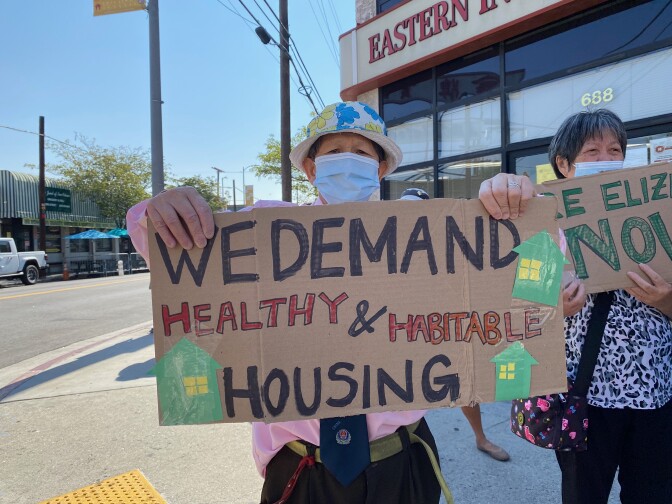
Residents of a Chinatown single room occupancy apartment building this week protested what they call “abusive” treatment by their landlord. Tenants said Howard Chan is trying to push them out through illegal rent increases and slow repairs, an ongoing battle since 2017.
Ady Carrillo, who organized the tenants, said she’s been living at the building for 13 years and pays a total of $800 for her apartment and another unit for her mother and brother.
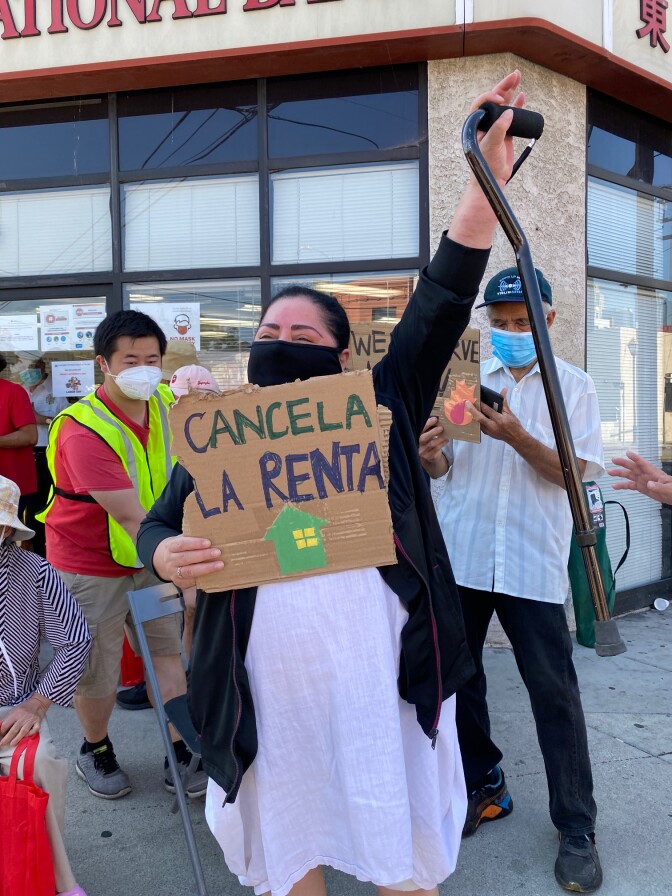
“I live on Social Security and there is no option ... we have to stay here,” Carrillo said on Thursday. “A lot of people are moving out because of the conditions...they are very bad.”
Approximately 40 people share a communal kitchen and bathroom in the building.
Carrillo said she believes the landlord’s tactics have been deliberate since they successfully protested a 2017 rent increase that exceeded what was allowed for the rent-controlled building. According to tenants, the landlord has not repaired:
- broken smoke alarms
- holes in the floor of the communal bathroom
- missing shower heads and toilet seats.
They also claim the property manager has confiscated clothes they hang on outdoor railings due to not having access to a washer and dryer in the building or the neighborhood. Carrillo said it takes 40 mins for her to get to a laundromat.
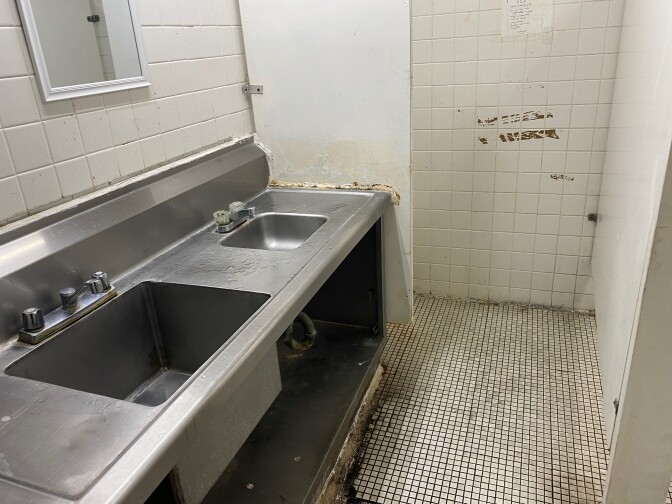
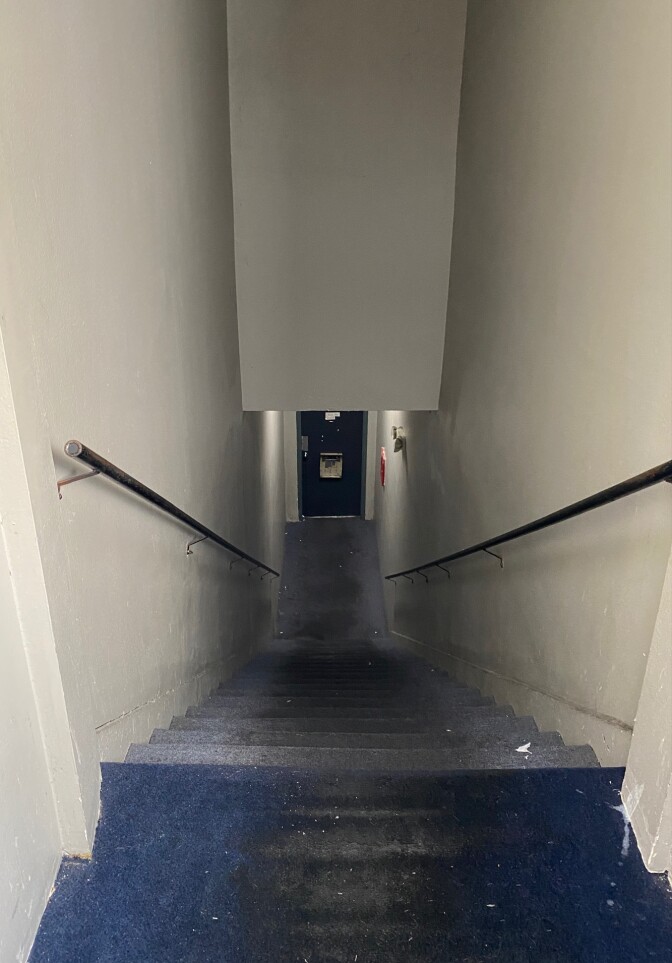
Single room occupancy units cater to mostly low-income people who share a kitchen and bathroom. They grew in popularity when workers arrived in Los Angeles in the late 19th century looking for work, according to a 2021 report by the UCLA Luskin Center for History and Policy. They were ubiquitous on Skid Row, but those types of units have been disappearing for decades across the city, the report says. Their elimination makes way for new market-rate developments that leave low income people with few options and sometimes force them onto the streets.
Craig Wong, a member of the Chinatown Community for Equitable Development, said they chose to protest outside Eastern International Bank, where Chan is on the board, because, “It symbolizes those who have the wealth in the community and those who don’t.”
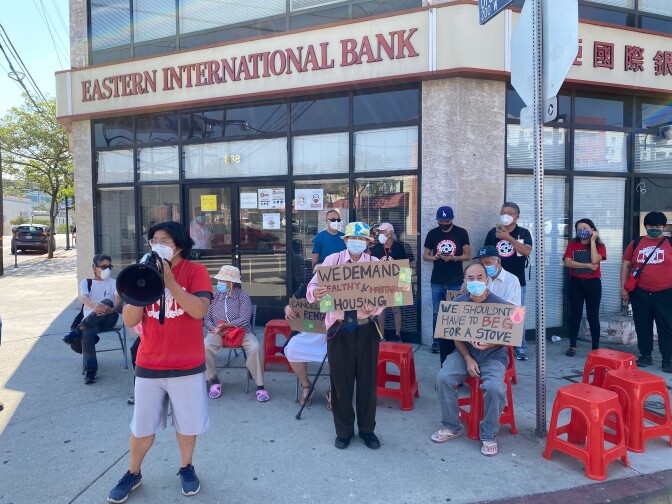
According to Wong’s group, new market-rate development in Chinatown is outpacing affordable housing, and half of the neighborhood’s residents already spend more than 30% of their income on rent. Immigrants make up 91% of the population in Chinatown, with a reported median income of $19,000, according to the CCED.
Carrillo sobbed as she shared that after he lost his job, her husband joined the U.S. Army out of desperation so they could survive.
“I can’t believe we had to do that to make money to pay the rent and for food,” Carrillo said.
Tenants at the protest said they want to be treated with dignity and respect, and they want the landlord to fulfill his legal responsibility to keep the building repaired and maintained.
LAist reached out to Chan and the building manager for comment but neither has responded.







